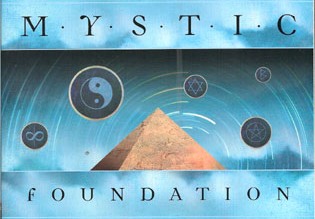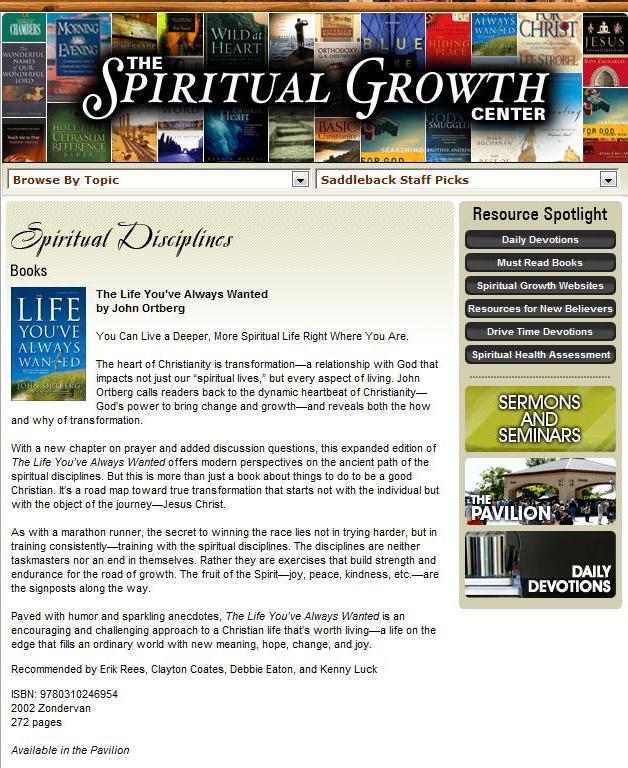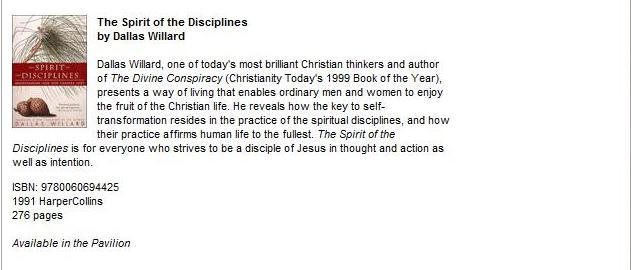RICK WARREN, SADDLEBACK CHURCH, AND SPIRITUAL DISCIPLINES
By Ken Silva pastor-teacher on Jun 14, 2010 in AM Missives, Contemplative Spirituality/Mysticism, Current Issues, Dallas Willard, Features, Rick Warren
 “Enter by the narrow gate. For the gate is wide and the way is easy that leads to destruction, and those who enter by it are many. For the gate is narrow and the way is hard that leads to life, and those who find it are few. Beware of false prophets, who come to you in sheep’s clothing but inwardly are ravenous wolves. You will recognize them by their fruits.”
“Enter by the narrow gate. For the gate is wide and the way is easy that leads to destruction, and those who enter by it are many. For the gate is narrow and the way is hard that leads to life, and those who find it are few. Beware of false prophets, who come to you in sheep’s clothing but inwardly are ravenous wolves. You will recognize them by their fruits.”
(Matthew 7:13-15)
Make A Right Judgment About Mysticism
Being a leading online apologetics and discernment work Apprising Ministries has become greatly concerned about the spread of corrupt Contemplative Spirituality/Mysticism (CSM); particularly within the neo-liberal cult of the sinfully ecumenical Emerging Church, which had been the main carrier of the spurious spirituality that they’ve been pawning off for years as so-called Spiritual Formation. It’s simply beyond question that the main purveyors of CSM are the Living Spiritual Teacher and Quaker mystic Richard Foster, along with Southern Baptist minister Dallas Willard—his spiritual twin.
You may believe me when I tell you that it’s well past time for recognizing the inclusive, and increasingly universal, fruit of the Emerging Church and the spiritual skubalon of Foster-Willardism. Jesus tells us we are not to judge by appearances; no instead, we are to judge with right judgment (Jn 7:24). In other words, it’s one thing to look good before the world by doing good deeds, it’s quite another to enter through the narrow gate. You see, to do that takes the Gospel of repentance and the forgiveness of sins through the Name of our crucified and risen Savior Jesus Christ because of His finished work on the Cross.
Doing good deeds, though there is most certainly a place for them because the Christian is his workmanship, created in Christ Jesus for good works, which God prepared beforehand, that we should walk in them (Eph. 2:10), can actually be done from the world’s standards by anyone passing through that wide gate. That’s why the answer given to the question Who Are You Christians Anyway? by Red Letter Christian and “Senior Fellow, The Cathedral College,” [1] of the spiritual blackhole that is Washington National Cathedral, Diana Butler Bass is woefully and absolutely inadequate.
In her latest post at the interspiritual (hello) website Beliefnet Bass tells us that she just spoke to “a large group of mainline churchgoers”; mainline means progressive/liberals, “who posed their conference theme as a question: ‘Who Are You Christians Anyway?'” Bass believes she gives the correct answer when she says:
I answered the question by saying that Christians are not people who inherit something or believe in something. Rather, Christians are people who do something: They walk the Jesus way by practicing the love God and love of neighbor. Christians participate in a way of life that reflects God’s dream of justice, beauty, and love for all creation.
We aren’t trying to convince anyone to believe in what we believe; we are trying to live authentically as Jesus would have us live in today’s world. Christians don’t believe in Jesus; Christians experience the reality of Jesus in their lives. This is a rather different definition than that which many of us knew from generations past–but it also may be the understanding of faith that commends itself to a skeptical culture. (Online source)
Resisting the urge to wrestle with the snake here, I’ll simply point out that the real Jesus differs in opinion with the centered on the self speculations of Diana Butler Bass, for the Lord clearly said — “I told you that you would die in your sins, for unless you believe that I am he you will die in your sins” (John 8:24). This deficient view of the Christian Gospel is a direct fruit of CSM; now consider that Richard Foster’s “Christian” message, which is also fruit of his own practice of CSM is now so drastically diluted that he’s even listed as one of the gurus at Living Spiritual Teachers Project.
At the interspiritual website Spirituality & Practice you’ll find this Quaker mystic (and when were Quakers ever evangelical Protestants) listed right alongside such false religious teachers as Deepak Chopra, the Dalai Lama, Brian McLaren, Thich Nhat Hanh, Eckhart Tolle, and Marianne Williamson. This now provides us with the proper background for our follow up to Steve Gladen, Saddleback Church Small Groups, And Quaker Mystic Spirituality where I introduced you to Steve Gladen, who’s “now the Pastor of Small Groups at [the] Saddleback Church” [2] of pretending to be Protestant Purpose Driven Pope Rick Warren.
I also showed you two “of the books that shaped Steve’s life,” Prayer: Finding the Heart’s True Home and Celebration Of Discipline (CoD); both books are written by Richard Foster, and each are also sold at Saddleback’s Pavilion. Now we’re ready to take a look at the Spiritual Disciplines page at the Saddleback Church’s The Spiritual Growth Center, where in addition to the Quaker mystic Counter (hello) Reformation spirituality of Foster-Willardism, we also find a couple of other interesting books which are also right in lock-step with its sinfully ecumenical squishy spiritual skubalon.
Each are also sold at the Pavilion; first we see The Life You’ve Always Wanted by John Ortberg:
If you didn’t know Ortberg is “Senior Pastor at Menlo Park Prebyterian Church [sic]” [3], and a former teaching pastor at the infamous Willow Creek Community Church, of the seeker driven Church Growth Movement where Bill Hybels holds court. Ortberg’s bio tells us he’s “passionate about ‘spiritual formation,’” this is contemplative-speak for the spurious CSM of Foster-Willardism, and further we’re told that he “has recently partnered with Monvee, an online spiritual assessment tool.” Over at Sola Sisters AM correspondent Christine Pack informs us in Monvee: Mysticism For The Masses that:
Monvee, which bills itself as “the future of Spiritual Formation,” is being brought to us by Leadership Network, the same poll-taking, finger-to-the-air group that brought us purpose driven, seeker sensitive churches. Leadership Network, headed up by Bob Buford and Tom Wilson, has partnered with well-known author John Ortberg to bring us Monvee, which I have termed Mysticism for the Masses. (Online source)
So when Ortberg’s book, “Recommended by Erik Rees, Clayton Coates, Debbie Eaton, and Kenny Luck” at Saddleback begins with a quote from existentialist Soren Kierkegaard, “Now, with God’s help, I shall become myself,” [4] and ends with a ringing endorsement from guru Richard Foster himself on the back cover, we can be certain that we’re deep into the murky waters of the CSM of Foster-Willardism. And sure enough, in his review of Ortberg’s book for Lighthouse Trails Research Dick Dufek tells us about the typical:
Quotations from mystics (from the past and present) the bibliography of this book clearly shows that Mr. Ortberg has been strongly influenced by mystics and he uses the principles espoused by these contemplatives to shore up his ideas on “Spiritual Formation. Again the danger of citing mystics/contemplatives in this book revolves around the [spurious] spirituality that they endorse. (Online source)
It’s the usual suspects who show up in Ortberg’s book, which is used in small group study at Willow Creek; e.g. we find Quakers Richard Foster and Thomas Kelly as well as Roman Catholic mystics Henri Nouwen and CSM Golden Buddha Thomas Merton. Next we come to The Spirit of the Disciplines by Dallas Willard:
In closing this, for now, I’ll simply show you how pastor Bob DeWaay enlightens us concerning these asceticism-lite practices of Pietism which these neo-Gnostic mystics like John Ortberg, Richard Foster, and Dallas Willard call “spiritual disciplines.” DeWaay points out in his Critical Issues Commentary article The Dangers of Spiritual Formation and Spiritual Disciplines: A Critique of Dallas Willard and The Spirit of the Disciplines that:
The spiritual disciplines that are supposedly necessary for spiritual formation are not defined in the Bible. If they were, there would be a clear description of them and concrete list. But since spiritual disciplines vary, and have been invented by spiritual pioneers in church history, no one can be sure which ones are valid. Willard says, [W]e need not try to come up with a complete list of disciplines. Nor should we assume that our particular list will be right for others.” The practices are gleaned from various sources and the individual has to decide which ones work the best. Willard lists the following: voluntary exile, night vigil of rejecting sleep, journaling, OT Sabbath keeping, physical labor, solitude, fasting, study, and prayer. Willard then lists “disciplines of abstinence” (solitude, silence, fasting, frugality, chastity, secrecy, sacrifice) and “disciplines of engagement” (study, worship, celebration, service, prayer, fellowship, confession, submission).
Willard offers a discussion of each of these, citing people like Thomas Merton, Thomas a Kempis, Henri Nouwen, and other mystics. We are told that practices like solitude and silence are going to change us, even though the Bible does not prescribe them. Willard writes, “This factual priority of solitude is, I believe, a sound element in monastic asceticism. Locked into interaction with the human beings that make up our fallen world, it is all but impossible to grow in grace as one should.” So if we cannot grow in grace without solitude, how come the Bible never commands us to practice solitude? The same goes for many other items on Willard’s list. (Online source)
As we finish this up next time you’ll see how Bob DeWaay decimates this neo-Gnostic Foster-Willardism by kicking out its central pillar holding up their highly speculative so-called spiritual disciplines.
________________________________________________________________________________
Endnotes:[1] http://tinyurl.com/2894427, accessed 6/14/10.
[2] http://tinyurl.com/3xmfgdv, accessed 6/14/10.
[3] http://johnortberg.com/?page_id=2, accessed 6/14/10.
[4] John Ortberg, The Life You’ve always Wanted: Spiritual Disciplines For Ordinary People [Grand Rapids: Zondervan, 2002], 11.
See also:
MONVEE TO OPEN DOOR FOR CONTEMPLATIVE SPIRITUALITY/MYSTICISM IN EVANGELICALISM
CONTEMPLATIVE MONVEE: PLACING EXPERIENCE ABOVE SCRIPTURE
DEBUNKING DALLAS WILLARD AND BEING WORTHY TO BE SAVED
CONTEMPLATIVE SPIRITUALITY OF RICHARD FOSTER ROOTED IN THE EASTERN DESERT AND THOMAS MERTON

